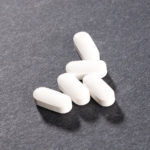By David Blyweiss, M.D., Advanced Natural Wellness
It’s no secret that high cholesterol levels contribute to clogged arteries. It’s also no secret that most doctors rely on potentially dangerous statin drugs to help patients keep their cholesterol under control.
But here’s the thing: Right now, top-level researchers are asking serious questions about these multi-billion dollar cholesterol-lowering drugs.
Personally, I wouldn’t risk my health on them. These aggressively marketed, expensive drugs are supposed to protect you and support a long, healthy life … but they’re now proven to pose serious, even deadly, risks.
And, in a shocking surprise twist, some may not even lower your risk of heart attack, stroke or death! Take a look at these facts:
- Statins offer little or NO protection for women without heart disease from heart attack, heart disease “events,” or death.
- Statins may reduce risk of heart attack in the elderly, but they may fail to protect against stroke.
- Statins can impair brain function and memory.
- Statins can cause liver damage or liver failure.
- Statins can also cause serious muscle inflammation, weakness and pain. And if muscles become damaged enough, they can release proteins into the blood that collect in the kidneys (a condition called rhabdomyolysis). This can ultimately lead to kidney failure or even death.
So why would anyone willingly choose to take a statin drug? Especially when there’s a safe, all natural way to lower your cholesterol levels and promote healthy arteries.
The secret is policosanol, a highly concentrated mixture of five natural alcohols that occur together in sugar cane wax. Unlike risky statin drugs, policosanol helps regulate the production of the cholesterol without directly blocking it. Policosanol also boosts your body’s own ability to remove and process dangerous LDL cholesterol from the blood and cells.
A medical review of policosanol studies showed these impressive results:
At doses of 10 to 20 mg per day, policosanol lowers LDL cholesterol by 21% to 29%, raises heart-protective HDL cholesterol by 8% to 15% and reduces total cholesterol by 17% to 21%.1
Are You Suffering From...
- Love handles and a pot belly
- Romance that isn't what it used to
- Forgetfulness and inattention
- Low (or no) strength and endurance
- A sex drive that's shifted into neutral...or worse
If so...you may have Mature Male Burnout. Click here to discover more about this unique condition and what you can do about it.
A recent clinical trial found that policosanol also lowered triglycerides, enhanced insulin sensitivity and reduced body mass index in people taking the supplement—and that’s in addition to lowering cholesterol levels.2
What really impresses me is that policosanol actually helps keep your arteries healthy, even if they’ve already been damaged. It does this by reducing the “stickiness” of your platelets. That means they won’t clump together and adhere to the walls of your arteries. Plus it thickens the lining of your arteries to keep future damage at bay.3
If that wasn’t enough, policosanol relieves leg cramps in folks with intermittent claudication (a common symptom of peripheral arterial disease).4 When 62 patients took 20 mg of policosanol or a placebo daily for 6 months, the policosanol group had fewer painful attacks and greater ongoing relief—with no side effects. A follow-up 2-year study showed that the relief doesn’t wear off, but improves with time. So do the heart-protective effects.
Remember, if you have high cholesterol or other risk factors for cardiovascular disease, even small changes can mean a big difference for your health and longevity. In fact, every 10% drop in cholesterol lowers your risk of heart attack by 25%. That’s a difference that can save lives.
Lowering cholesterol is a proven key to living a longer, more energetic life. And policosanol can help you
References:
- Gouni-Berthold I. Policosanol: clinical pharmacology and therapeutic significance of a new lipid-lowering agent. American Heart Journal. 2002;143:356-365.
- Musto D. Non-alcoholic hepatic steatosis: the role of policosanols in associated hyperlipidemia. Minerva Gastroenterologica e Dietologica. 2010;56:389-395.
- Noa M. Protective effect of policosanol on endothelium and intimal thickness induced by forceps in rabbits. Journal of Medicinal Food. 2007;10:452-459.
- Illnait J. Effects of policosanol (10 mg/d) versus aspirin (100 mg/d) in patients with intermittent claudication: a 10-week, randomized, comparative study. Angiology. 2008;59:269-277






